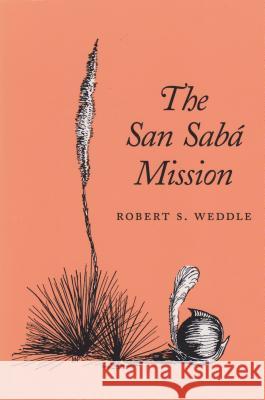The San Saba Mission » książka
topmenu
The San Saba Mission
ISBN-13: 9780890969113 / Angielski / Miękka / 1999 / 256 str.
The Spanish approach to the occupation of eighteenth-century Texas embraced the triad of mission, presidio, and settlement. In founding communities, Franciscan missionaries sought to convert the natives to Christianity and make them productive Spanish citizens. By midcentury, however, change was in the offing.
The turning point was the San Saba Mission disaster and the ensuing military campaign to punish the Indians responsible. In 1758, the mission, near present-day Menard, was destroyed with the loss of several lives, including two of the missionaries, less than a year after its founding. In The San Saba Mission Robert S. Weddle examines the factors that led to this tragedy and its influence on the reshaping of frontier policy, as well as the residual effects not only on the immediate Spanish settlements but on the area's development as a whole. Weddle's book offers a gripping account of the presidio's role in the episode, drawing on archival sources, including correspondence of missionaries and military officers with their superiors in Mexico. Weddle analyzes the consequences of the mission-to-settlement system and concentrates on the military aspects of the mission, noting that after the religious mission was abandoned, the presidio served later as the base for the strongest Spanish military expedition against Indians in Texas and probed territory as far west as the Pecos River. The San Saba Mission recounts some of the most sensational events in Spanish-Texas history in an intriguing and entertaining voice. A new introduction to this 1964 classic describes the findings of archaeologists after the mission site, not previously known, was discovered and excavated in the early 1990s. This volume stands as a valuable resouce in the canon of Texas history.










